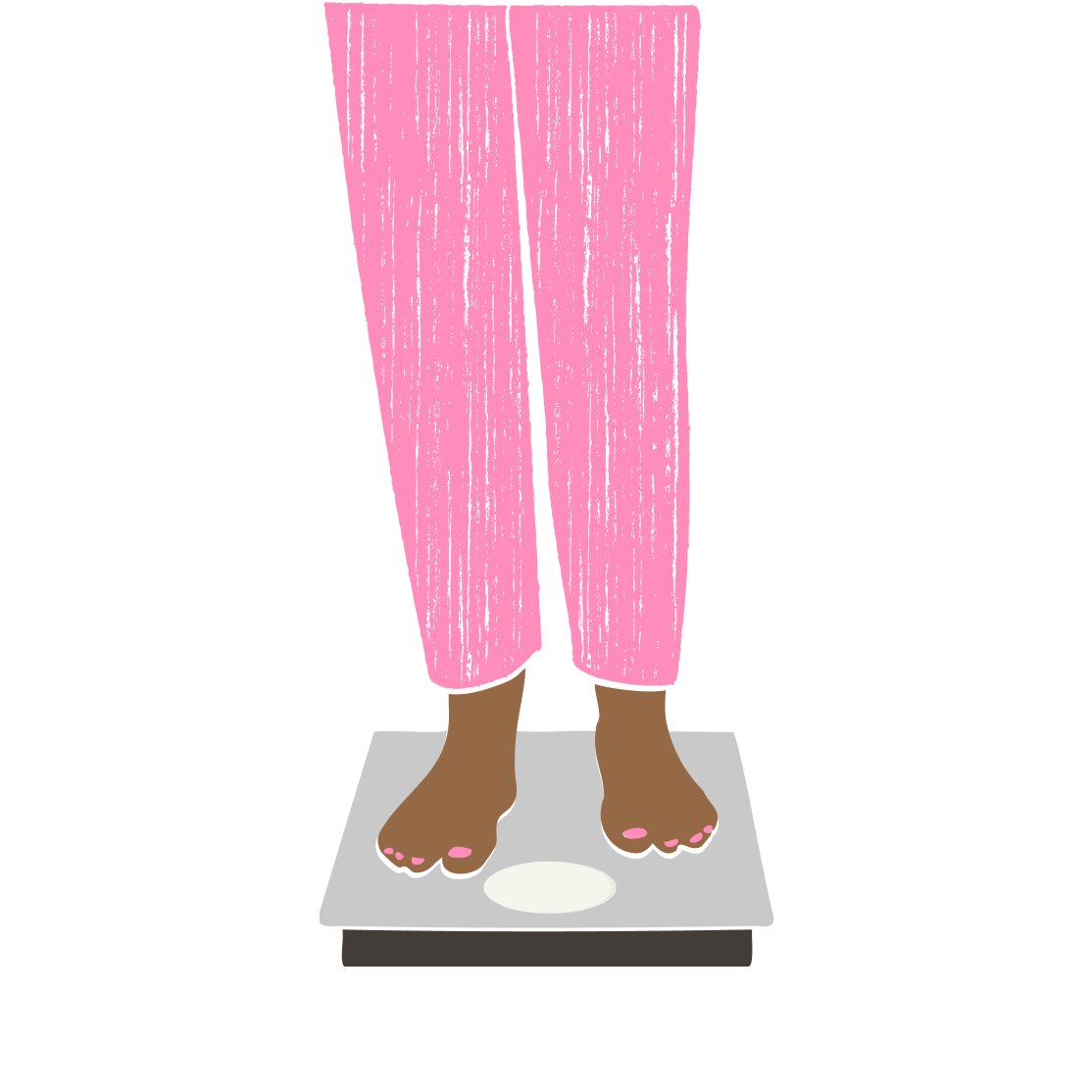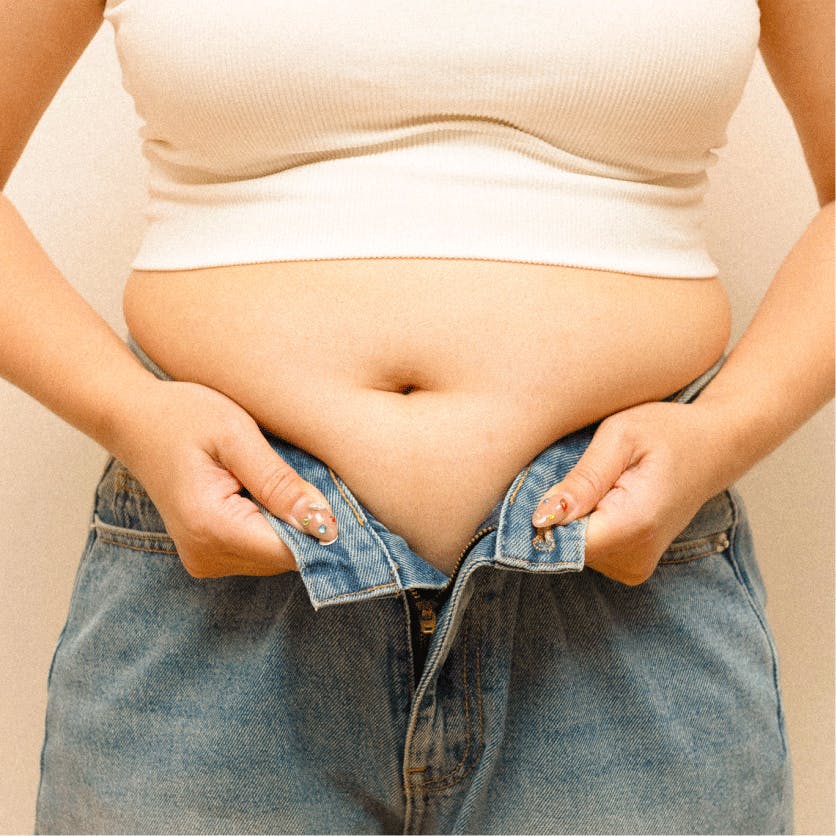What's the best probiotic for women? Great question. With so many options on the market, it’s essential to know what your body actually needs—and what you can skip. From supporting vaginal and gut health to strengthening your immune system, here’s what to know about probiotics, their benefits, and how to choose safe, effective formulas.
By now, you’ve likely heard that probiotics—the live microorganisms that live in the digestive tract—can be beneficial for your health. The buzz around these “good gut bugs” is still going strong, and research continues to uncover their many potential advantages, particularly for women navigating perimenopause and menopause.
While researchers are still piecing together all the ways probiotics support health, emerging research suggests that a healthy, diverse gut microbiome may play a supportive role in immune function, hormone production, and mental well-being. And, for many women, probiotics may be helpful additions to their wellness routine, especially when digestive issues, blood sugar swings, or vaginal discomfort start to creep in.
So how can women choose the best probiotic for gut health, vaginal health, and more? Read on to learn more about what to look for in these supplements, how to choose high-quality formulas, and what you can expect when it comes to results.
What Are Probiotics?
Our gut is home to an entire ecosystem of microbes—bacteria, fungi, and even viruses. For good gut health, you want these gut bugs to be diverse, plentiful, and balanced. Probiotics, found in certain foods (yogurt, kefir, kombucha) and supplements, can help increase the amount of beneficial bacteria. To thrive, probiotics rely on nourishment from dietary fiber, especially fiber from plants, which acts as fuel for these beneficial bugs. This, in turn, may help promote your well-being in various ways, supporting gut, vaginal, and immune health. There’s also some evidence that probiotics help support digestive regularity, weight management, and mood.
Health Benefits of Probiotics for Women
There are many different strains of probiotics, and research shows that some species and strains are best suited for specific health problems. That said, the science, while promising, isn’t always clear-cut. Think of probiotics as one tool in your wellness toolkit, not a miracle fix.
Probiotics and Gut Health and Digestion
When it comes to supporting your gut health and digestion, probiotics—depending on the strain—may help address common concerns, including:
- Constipation can be a common issue for women, especially as hormone levels fluctuate during the menopausal transition. Adding a probiotic with Lactobacillus and Bifidobacterium strains might help you become a little more regular.
- Irritable bowel syndrome (IBS) is a condition featuring cramping, abdominal pain, bloating, and diarrhea or constipation.A study in the journal Gastroenterology found that there may be some benefit to specific strains of probiotics in reducing symptoms of IBS, though more research is needed.
Probiotics and Vaginal Health
When it comes to general vaginal health, Lactobacillus is a key player. It’s one of the most common bacterial species in the vagina, and it helps keep the vagina slightly acidic, which discourages the overgrowth of bacteria that contribute to yeast infections and bacterial vaginosis (BV).
BV is a bacterial infection in which there is an imbalance of bacteria in the vaginal microbiome. And taking probiotics—especially the oral form of Lactobacillus rhamnosus—together with antibiotics has been shown to be a more effective treatment compared to antibiotics alone, according to one study.
But it’s not just about keeping infections at bay. During perimenopause and postmenopause, vaginal dryness and irritation are common. And there’s early research indicating potential benefits for vaginal dryness from vaginal treatments with estrogen and Lactobacilli. While this doesn't compare to oral probiotics, it does suggest that Lactobacillus may benefit women with this common concern.
Probiotics and the Immune System
Your gut microbiome is intricately connected to your immune system. Probiotics may help:
- Promote the growth of immune cells
- Increase immune cell activity
- Bolster production of anti-inflammatory proteins
- Influence immune response
Although more research is needed, there’s some evidence that Lactobacillus strains can help shore up the body’s immune system in athletes who perform high-intensity exercise. It’s also been shown that a daily BI-04 supplement (Bifidobacterium animalis) reduced the risk of upper respiratory infection in healthy active adults by 27% compared to a placebo supplement.
Probiotics During Pregnancy and Breastfeeding
Pregnancy can shift the balance of bacteria in your gut. There is some indication that if you have gestational diabetes (diabetes that develops during pregnancy), taking probiotics alongside a healthy diet and regular exercise may help decrease your risk for developing future metabolic syndrome, a cluster of conditions like high cholesterol and blood pressure that increases your risk for heart disease and stroke.
During breastfeeding, taking oral probiotic pills with the strains below may help populate breast milk with beneficial bacteria and reduce pathogenic bacteria, as well as improve the health of the baby’s gut microbiome, regulate their weight, and reduce the risk of colic:
- Lactobacillus
- Bifidobacterium
- Streptococcus thermophilus
- Saccharomyces boulardii
Research suggests that probiotics are usually safe to take during pregnancy and breastfeeding, but it’s important to check with your OB-GYN before starting any new supplement.
Top Probiotic Strains for Women’s Health
Most research on probiotics shows that supplements that match the strain(s) to your health concern is the most important factor in its efficacy. When it comes to top probiotics for women, here’s a cheat sheet to help you match strains to your wellness goals.
Probiotics for Gut Health and Digestion
- Lactobacillus and Bifidobacterium may improve digestion and regularity.
- For IBS specifically, go for strains like Bifidobacterium infantis and Lactobacillus plantarum.
Probiotics for Vaginal Health
These strains have been shown to help keep the vagina healthy:
- Lactobacillus rhamnosus
- Lactobacillus reuteri
- Lactobacillus acidophilus
Probiotics for Immune Support
These strains may have species that help promote proper immune system function:
- Lactobacillus
- Bifidobacterium
Probiotics for Recurrent UTIs in Perimenopause
While more data is needed, these strains have been identified as having the highest efficacy for UTI prevention:
- L. rhamnosus GR-1
- L. reuteri B-54
- L. reuteri RC-14
- L. casei shirota
- L. crispatus
Probiotics for Bacterial Vaginosis (BV)
Bacterial vaginosis (BV) is a common vaginal condition caused by an imbalance of bacteria in the vagina, and it becomes more common during perimenopause and menopause because declining estrogen levels reduce protective lactobacilli and raise vaginal pH, making it easier for harmful bacteria to overgrow. Though efficacy trials are limited, probiotics are often employed both as standalone and complementary treatments for BV. Strains that have been shown to help:
- L. rhamnose
- L. reuteri
- L. acidophilus
Choosing the Right Probiotic Supplement
There are so many probiotic supplements on the market today, it can make your head spin. To maximize your benefits, look for ones that:
- Contain the bacteria strain(s) that have been shown to be effective for your health goals
- List how many colony-forming units (CFUs) the probiotic contains, purchasing one with at least 10 to 20 billion CFUs. (CFUs indicate the number of live, active microorganisms in each dose. For a probiotic to be effective, especially for gut or vaginal health, it needs to deliver a high enough dose to make a difference. A product with at least 10 to 20 billion CFUs helps ensure you’re getting a therapeutic amount that can actually support your microbiome.)
- Have been clinically tested (in terms of the strains themselves and/or the product as a whole) and undergo regular third-party testing to check for the potency of probiotics and presence of contaminants, including heavy metals, yeasts and molds, bacteria, and allergens. Looking for labels like USP Verified can be a helpful barometer to show that products have been independently verified.
But don’t feel like you have to make this decision on your own. Work with a healthcare professional, like a Midi clinician, who can make recommendations that are personalized to your needs.
Doctor-Recommended Probiotics for Women
At Midi, each woman’s Care Plan is tailored to her specific health goals and needs. When it comes to probiotics, we often recommend:
- Pendulum: GLP-1 Probiotic
- Thorne: FloraMend Prime Probiotic
- Seed: DS-01 Daily Synbiotic
- Metagenics: UltraFlora Spectrum Probiotic
- VSL-3 (has multiple gut-specific probiotic species)
- Align Probiotics (has multiple gut-specific probiotic species)
- RepHresh Pro-B Vaginal Probiotic Supplement (has two clinically tested vaginal Lactobacillus strains)
- VagiBiom Probiotic Suppository-Natural (contains two vaginal-specific probiotic species, lactic acid, and hyaluronic acid)
- Jarrow Fem-Dophilus Probiotics (has 5 vaginal and 1 gut-specific probiotic species)
Probiotic Foods vs. Supplements
Some foods are rich sources of probiotics. You’ll find probiotics in foods, like:
- Plain Yogurt
- Cultured buttermilk
- Miso
- Tempeh
- Sauerkraut
- Kimchi
- Raw unfiltered apple cider vinegar
- Kefir
You can incorporate these foods into your diet in a variety of delicious ways, like using yogurt or kefir as a base for a smoothie, marinating and baking cubes of tempeh to throw in a rice and veggie bowl, and topping a turkey or hummus sandwich with veggies and sauerkraut.
Probiotics can also be added to foods, and that’s where you might see probiotic snack bars or smoothies, though their effectiveness isn’t well-studied. Some foods, such as “gut-health” sodas, nutrition bars, fruit “bites,” trail mix, and plant-based milks, may also be fortified with probiotics. Watch for additives, like added sugar, before choosing one of these. Just because something has added probiotics doesn’t automatically mean it’s nutritious.
Bottom line: Including a variety of plant-based, fermented foods in your diet is a great start. Just eating a variety of plant foods every week has been shown to promote microbiome diversity.
How Long Does It Take for Probiotics to Work?
Probiotics can take time to work, and sometimes the effects of a supplement will be subtle. It takes about 10 to 14 days for probiotics to colonize the GI tract, according to research. It’s at that point that they can start to help, so it may take several weeks or months to truly feel the benefits.
Common Mistakes to Avoid with Probiotics
With so many probiotic supplements on the market, it’s easy to start taking something that’s not exactly right for you. (That said, taking a probiotic not optimized for your needs isn’t inherently dangerous, though it may lead to disappointing results and, ultimately, be a waste of money.) Here are the potential pitfalls to have on your radar:
- Not taking the right probiotic strain. If you have specific health concerns, make sure you’re matching the strain to your goals. Taking a probiotic not optimized for your needs is not dangerous, but may lead to disappointing results and limited benefits.
- Using a product with too few CFUs. In general, adults should aim for 10 to 20 billion CFUs; however, some high-potency products used in the management of conditions like IBS may contain more than 100 billion.
- Expecting immediate effects. Depending on your goal, it may take weeks or even months to see benefits. If your clinician includes probiotics in your care plan, ask for guidance on when (and how) to evaluate how well it's working for you.
- Ignoring your diet and hydration. Your body needs a variety of plant foods (aka fibers) to supply prebiotics, which are the food for probiotics, allowing them to thrive.
- Storing probiotics incorrectly. Some probiotics need to be refrigerated. Read the label on your product to know exactly how to store yours.
Potential Side Effects and Precautions: Are Probiotics Safe?
Generally, yes, probiotics are safe for healthy people, according to the National Center for Complementary and Integrative Health. But it’s important to check in with your healthcare provider before starting any new supplements. This is especially important if you're immunocompromised or battling a serious illness.
There is also a risk that the product itself could be mislabeled or contaminated, since probiotics aren’t regulated by the FDA. That’s why it’s important to shop for reputable brands and look for evidence of quality control testing and ingredient transparency.
When Not to Take Probiotics
Probiotics are safe for many women—but they’re not appropriate for everyone. If you’re unsure, a clinician can help you decide what’s beneficial for your body and health history. You should talk to a clinician before taking probiotics if any of the following apply to you:
- You’re immunocompromised: If you have a weakened immune system or take immunosuppressant medications, live bacteria or yeast in probiotics may increase infection risk.
- You’re critically ill or have certain medical conditions: In serious or fragile health situations, adding any over-the-counter medications or supplements, like probiotics, should be run by your care team first.
- You have SIBO (small intestinal bacterial overgrowth): Adding more bacteria may worsen symptoms like bloating, gas, and abdominal discomfort.
- You have certain medical conditions or devices: Conditions like severe pancreatitis, short bowel syndrome, or having a central venous catheter may make probiotics unsafe without medical guidance.
- You have food allergies or sensitivities: Some probiotics contain dairy, soy, or other allergens—always check the label.
Cost and Availability of Probiotic Supplements
Probiotic supplements vary by brand, dosage, and formulation. Some are also sold under the category of “synbiotics,” which is a formula containing a combination of prebiotics and probiotics.
You can look for probiotics in grocery stores, health food stores, pharmacies, and from online retailers. Some may be found in the refrigerated section. Like most supplements, probiotics are also sold in varying forms, including capsules, powders, and gummies.
Key Takeaways
- Probiotics are live microorganisms that naturally live in our digestive tracts—they play a role in various aspects of our health, such as digestion, immunity, mood, vaginal health, and more.
- Research shows that certain species and strains may help manage certain health conditions, including some potential symptom relief during perimenopause and menopause.
- You can take probiotics as a supplement or get them through food like yogurt, kefir, tempeh, and miso.
Frequently Asked Questions (FAQs)
What is the highest-rated probiotic for women?
One highly rated choice is Garden of Life Once Daily Women’s Probiotic. This brand holds third party certifications and is formulated with 16 strains of Lactobacillus and Bifidobacterium species.
Which probiotic is most recommended by doctors?
This is tough to say. What’s most important is finding one that’s best for you, based on your health and individual needs. If you are unsure of which one to choose (there are so many!), talk to your provider. Midi’s medical team recommends Pendulum GLP-1 Probiotic, Thorne FloraMend Prime Probiotic, Seed DS-01 Daily synbiotic, and Metagenics UltraFlora Spectrum Probiotic.
What is the best probiotic for weight loss?
It’s not completely clear what probiotic is best for weight loss. Some research suggests that L. reuteri, L. paracasei, and L. gasseri strains may be helpful in supporting weight management goals. However, studies so far show that effects on weight are small. A balanced lifestyle with whole foods, regular exercise, and good sleep supports healthy, lasting weight loss.
Do women need a daily probiotic?
A probiotic isn’t a “must” for women, but it may be helpful, depending on your health goals. Talk to a healthcare provider to see if you may benefit from a probiotic as part of your overall wellness routine.
If you’re in perimenopause or menopause and want guidance from clinicians who specialize in women’s midlife health, book a virtual visit with Midi today.
Hormonal change is at the root of dozens of symptoms women experience in the years before and after their period stops.
Our trained menopause specialists can help you connect the dots to guide you towards safe, effective solutions.
Whether you need personalized guidance or a prescription routine to tackle symptoms—including brain fog, hot flashes, sleep trouble, mood swings, and weight gain—we’ve got you covered. Learn more here.
Midi’s mission is to revolutionize healthcare for women at midlife, wherever they live and whatever their health story. We believe that starts with education, to help all of us understand our always-changing bodies and health needs. Our core values guide everything we do, including standards that ensure the quality and trustworthiness of our content and editorial processes. We’re committed to providing information that is up-to-date, accurate, and relies on evidence-based research and peer-reviewed journals. For more details on our editorial process, see here.


 Victoria Eaton, RDN, LDN, IFNCP
Victoria Eaton, RDN, LDN, IFNCP



